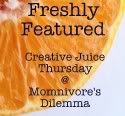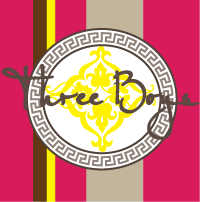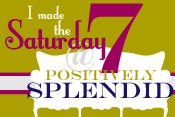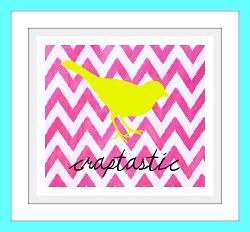
Thursday, October 6, 2011
A Bit of History of Halloween
As Halloween is just around the corner I thought I’d give a little history of this most unusual of holidays. Believe it or not, it’s not as old as you might think and Halloween as we know it today owes more of its traditions to America than any other country. The name Halloween comes from a Scottish derivative of All Hallows Eve, the night preceeding All Saints Day. Much like the European Walpurgis Night which falls on the eve of May Day, or the Medieval Feast of Fools, Halloween is a leftover from ancient pagan holidays celebrating harvests and the changing of the seasons. However, the odd association with ghosts and witches is a bit harder to pin down.
Ancient superstitions regarding night, the movement of the stars and the moon, and the change of seasons are found in nearly every culture around the world. It was often believed that restless spirits and malicious fairies roamed the earth on these various “eves” as the doorways to the spirit world were opened during these annual transitions between winter and spring or one year to the next. The tradition of Christmas ghosts faded with the end of the Victorian period and never really took root in America but Santa Claus himself is a spirit who comes forth on Christmas Eve.
The two most important contributions America has made to Halloween is the pratice of carving pumpkins and the door-to-door begging known as “trick-or-treating”. In old Ireland and Scotland turnips were carved and lit with candles in a practice known as “souling”, a way of remembering souls who were believed to be in Purgatory. When immigrants arrived in America they adopted the pumpkin for carving as it was larger and grew in abundance. Jack-o’-lanterns, as they are now known, owe their name to a legendary farmer in Irish folklore known as Jack of the Lantern, a restless spirit who wanders the earth carrying a burning ember in a turnip tossed to him by the Devil, a legend used to explain phantom lights sometimes seen in the night.
Trick-or-treating in America really didn’t begin in earnest until the 1930s. Another Scottish tradition, known as “guising”, the practice of dressing up in costumes and “begging” for treats or coins traces its origins back to medieval times when the poor would go from door to door looking for charity on All Hallows Eve. The trick part of the bargain, as Halloween is primarily a children’s holiday, is nothing more than a threat to stingy persons who might not want to give out treat. “Trick or treat” is less of a request than it is a demand; that is, either give me a treat or risk finding your trees wrapped in toilet paper!
Americans, it seems, really began to embrace Halloween as we know it today in the end of the 19th century. There are thousands of wonderful illustrations dating from the Golden Age of the Postcard Era (1900-1920) that depict everything from bobbing for apples to to the pratice of young ladies throwing an apple peel over their shoulder in the hopes of it spelling out the name of their true love. The images found on these cards are icons of American Halloween traditions and form the basis of much modern Halloween imagery.
Halloween has a long and complex history. It is filled with all sorts of long-forgotten superstitions and practices. It is an amalgam of folklore, history, superstition and tradition that emerged from the American melting pot as one of the most unique and popular holidays we celebrate. It’s the only time of year when it is socially acceptable for usually sober adults to dress in outlandish costumes and to decorate the exterior of your house with ghosts and tombstones. But more than that, Halloween is truly a community event and the only holiday in America when we open our doors to complete strangers, from all walks of life, and happily give them something out of the goodness of our hearts. It is a holiday about goodwill and charity and one that should be preserved for future generations.
Sources:
The Oxford English Dictionary (2nd ed.). Oxford: Oxford Univ. Press. 1989
Diane C. Arkins, Halloween: Romantic Art and Customs of Yesteryear, Pelican Publishing Company (2000).
Nicholas Rogers, Halloween: From Pagan Ritual to Party Night, Oxford University Press, USA (2002).


Subscribe to:
Post Comments (Atom)






























































I knew a lot of it was tied to Ireland! Learned a lot from your post.
ReplyDeleteWhen I started blogging in 2006 I only knew a little to nothing about Halloween. Now I know and it slowly also moves into Belgium. And yes it's much more celebrated in the States then in Ireland itself where it came from.
ReplyDeleteMy youngest daughter was just telling me all about this on the ride to school. Funny how traditions are created. Very interesting.
ReplyDeleteDana
What a nice presentation of Halloween and even bits and pieces about good old Saint Nick! Nicely done, and I am a believer in keeping the goodness and sharing and happiness of Halloween at it's best! Long live goodness and joy in all that we do....especially for our children today...that seem to be filling their days with things like Angry Birds on cell phones and moms and dads texting all the time instead of playing games or singing songs on car rides today!
ReplyDeleteInteresting stuff, some of it entirely new to me.
ReplyDeleteThanks!
=)
Interesting stuff, some of it entirely new to me.
ReplyDeleteThanks!
=)
New follower from Alphabe-Thursday. Nice to meet you. I loved you family room as well!
ReplyDeleteI hadn't heard about the apple peel. I need to try that at my teen's party on Saturday. That would be a riot! Thanks for a great idea.
Thanks for sharing. That was interesting.
ReplyDeleteVery interesting. :)
ReplyDeleteInteresting.
ReplyDeleteTeresa
Oh my gosh! I didn't know hardly any of this!
ReplyDeleteWhat a fascinating read!
Now if I would just have read it before Halloween (instead of being ridiculously behind) I would have been able to impress people with my knowledge!
Ah well. There's always next year!
Thanks for linking up!
A+